Bedtime Snacking

Ever feel hungry right before bed? Most sleep specialists agree that going to bed hungry could interfere with sleep. But, eating a big meal right before bed could also interfere with sleep. So, what do you do? Well, it's all about choosing foods that promote sleep, and then taking a mindful approach to eating those foods. When choosing that nighttime snack, look for foods that have tryptophan and/or magnesium. Tryptophan is an amino acid that helps regulate sleep and mood; magnesium is a mineral with many health benefits, including deeper, more restful sleep. Both tryptophan and magnesium help produce and regulate melatonin, which is a hormone that supports the sleep-wake cycle and helps the body wind-down. Even with tryptophan and magnesium, no food is guaranteed to help you sleep. However, sleep research suggests the following foods are the best (and worst) to eat before bed:
Five Sleep Promoting Foods
Five of the Worst Foods for Sleep
You already know this, but different foods can affect each person differently. Foods that help one person sleep may not make a difference for another person. So, finding what works for you (and finding your favorite late-night snack) could take a few nights. Regardless of what you choose as your late-night snack, be sure to practice mindful eating. This means focusing on the food in front of you, and taking the time to enjoy the flavors, aromas, and textures without self-judgement. Mindfulness can also help with relaxation, which helps you sleep.
Body Temperature
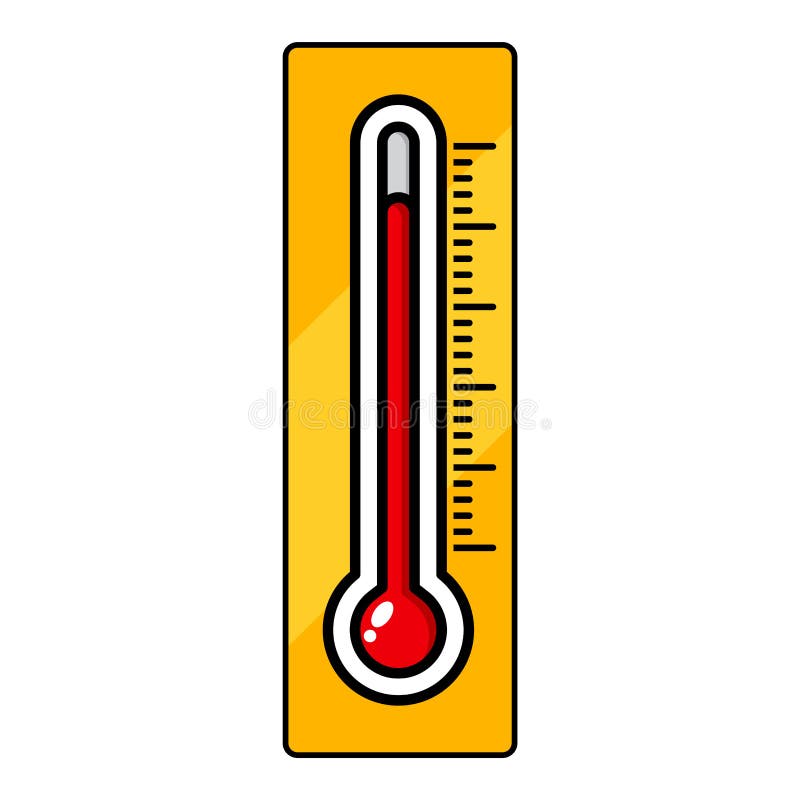
As morning approaches and you get out of bed, your body temperature rises to help you stay awake. The opposite happens at night, when your body temperature starts dropping as bedtime approaches; it continues to drop as you drift off to sleep. Did you know taking a shower or bath an hour or two before bed also causes your body temperature to rise and fall and can help you sleep? Sleep experts recommend taking a bath or shower in hot water, but if you prefer warm water instead (especially during a Texas summer) it can still work. A warm shower or bath raises the body temperature, followed by an automatic and quick drop once the shower or bath is over. That drop in temperature tells the body it’s time for sleep, and your own internal relaxation response starts to kick in. After your relaxation response kicks in, continue to wind down for about 30 minutes with a meditation, your favorite book, or a favorite oldy-but-goody television show to continue relaxing before crawling into bed.
Sleep Myths

If you’re not getting enough sleep, you’re not alone. In Texas, more than 36% of adults sleep less than 7 hours each night. Why? There are a variety of reasons. Often, those reasons are expected and (usually) temporary. For example, a puppy, kitten, or new baby will interrupt your nights. Having someone at home who is ill - you, a pet, a child, a significant other - will also interrupt your sleep. But if a lack of sleep is not due to one of those reasons, it could be because of a belief in one of many common myths about sleep.
Myth 1: We don’t need as much sleep as we get older.
Many people minimize their lack of sleep by attributing it to getting older. Aside from a medical condition, injury, or medication, after the age of 18 our sleep needs do not drastically change. However, with age comes an increased likelihood of developing a sleep disorder, and lighter sleep. Functioning (sort of) on little sleep does not mean we need less sleep.
Myth 2: Everybody needs 8 hours of sleep.
Nope. According to the American Academy of Sleep Medicine, adults need 7-9 hours of sleep a night on a regular basis to promote and support good health. Those who adhere to the 8-hour rule tend to “give up” on their sleep when they cannot get the full 8 hours. Maybe you need 8 hours, maybe you need a little more or a little less.
Myth 3: We can catch up on lost sleep on the weekend.
Ahhh the dream…sleeping in and catching up on sleep. Unfortunately, research shows it takes more than two days to recover to a fully rested state after several days of sleep deprivation. Depending on how long you’ve been sleep deprived, it might be possible to catch up on some lost sleep on the weekend. But the problem with that is your sleep schedule changes every few days. That messes with your circadian rhythms, which can cause other issues. For example, do you sleep late on the weekend to catch up, then go to bed early Sunday night and have trouble falling asleep? If so, check the consistency of your sleep schedule.
Myth 4: Watching TV will help you fall asleep.
While we all occasionally fall asleep to boring TV shows and movies, using that as a sleep strategy is not the thing to do. Although the background noise of the TV can sometimes help with sleep, we all know the volume and lighting can change with every program and commercial. The changing volume and lighting interrupts the quality of your sleep and can cause you to wake up in the middle of the night. Plus, if you get into a good program, it could be a late night. For better background noise, use a fan or sound machine so the noise is more constant and there is no light to wake you. That said, it’s fine to watch something mindless during the wind-down right before going to bed. Just turn off the TV when you turn off the lights.
Myth 5: Exercising at night helps with sleep.
Regular exercise will help with sleep, but aerobic exercise 1-2 hours before bed makes it hard to fall asleep. The reason is that exercise increases your body temperature, which tells the body it’s time to be awake. This doesn’t mean you’re doomed to exercise only in the morning. It just means the body should have enough time to cool down completely before trying to sleep. Other forms of exercise, such as light stretching, or a leisurely walk are better choices close to bedtime.
Myth 6: Warm milk or herbal tea before bed will help you sleep.
When it comes to food and sleep, there is little evidence that specific foods help you sleep. As for warm milk and green tea, milk has tryptophan and green tea has theanine, both of which might help with sleep, but the effects can vary with each person.
Myth 7: Being sleep deprived means you’re working hard.
Society tends to reward those who stay up late to work or study, but sleep deprivation is not a badge of honor. Instead, it endangers physical and mental health, interferes with concentration and memory and, at the very least, makes the day seem longer than it is. Even if your consistent lack of sleep is somehow “rewarded”, think what you could accomplish if you were well rested.
Mindful Sleep
![]()
Mindfulness & Meditation
You may have heard the terms mindfulness and meditation used interchangeably, but they are not the same. Mindfulness is being able to focus on, and stay in, the present moment. Meditation helps you learn to be mindful. Meditation is not about clearing your mind or chanting. It teaches you to stay in the moment regardless of anxious or stressful thoughts that try to invade your day.
Can meditation help with sleep?
According to the research, the answer is yes. Most sleep problems are due to anxiety and stress, with anxiety being a primary cause of insomnia. Meditation can lower stress and anxiety by quieting the mind and relaxing the body. Studies show that meditation increases serotonin (neurotransmitter linked to rest), increases melatonin (hormone linked to sleep), lowers the heart rate, and lowers norepinephrine (neurotransmitter linked to anxiety). This means meditation quiets the mind and body, reduces insomnia, and provides head-to-toe calmness. In short, it helps you sleep better.
Can meditation make up for lost sleep?
Meditation is linked to rest and the restoration of all systems of the body, so it can have many of the same benefits as sleep. But meditation is not a substitute for sleep.
When should I meditate?
When to meditate depends on you and your schedule. What is most important, is to have a daily meditation practice. Here are a few tips for getting started:
- Find a quiet place.
- Choose a time that works with our schedule.
- Get comfortable.
- Set a time limit.
- Accept that your mind will wander and don't judge yourself for it.
- Pay attention to your breath.
The place, the amount of time spent in meditation, and meditation techniques can vary from day to day. Don't overthink it and apply rules that make it stressful to even think about meditating!
Which meditation should I use?
That depends on you and what you need in that moment. There are different meditation techniques, and meditations for different purposes. For example, meditations to create energy, walking meditations, body scans, and eating meditations are options. Most meditations are designed to help with anxiety and stress.
There are several meditation apps available, and some offer free meditations. Not all apps or meditations will appeal to everyone. Find the app and meditation technique that works for you, then commit to practice a few minutes every day to improve your sleep.
How Much Sleep is Too Much?

How much sleep is enough? Well, that has been the million-dollar question since the beginning of sleep medicine, and the answer is….it depends on the person. Sort of.
There are those who believe they function just fine on 4-5 hours of sleep a night, and others who believe they need 10+ hours of sleep a night. Others think they’re more productive on less sleep and believe sleep is a waste of time. Current sleep research disagrees with all of that.
According to research, healthy adults need 7-9 hours of sleep on any given night. That said, some people only need 7 hours, while others need closer to 8 hours. Of course, there will be times when you sleep less than 7 hours, or more than 9 hours (especially if you’re sick), but that should be the exception, not the rule.
When you don’t get enough sleep, not only are you tired, but you’re also less productive, less creative, cannot focus, have trouble remembering, and struggle to make decisions. You also tend to be more pessimistic and irritable. In fact, research has shown that people who get 7-9 hours of sleep each night are twice as productive as their coworkers and peers who sleep less than 7 hours each night.
Although there’s still mystery around what the mind and body are up to while we snooze, we’re designed to sleep and therefore need sleep to stay alive.
Sleep provides many health benefits, most of which you already know or have explored in your quest to sleep better. Among other benefits, sleep…
- Supports your nervous system,
- Supports cardiovascular health,
- Increases memory function,
- Regulates emotions,
- Lowers anxiety,
- Decreases symptoms of depression,
- Provides solid support for overall physical and psychological health,
- Is more potent than vitamin C,
- Regulates and strengthens your immune system,
- Restores and regenerates your body,
- Heals the cells in your body,
- Lowers pain levels,
- Allows your brain to recuperate from the day, and
- Controls appetite and blood sugar.
Just as sufficient sleep brings these vital benefits, a chronic lack of sleep has been linked to several serious health conditions. Keep in mind that certain medications and physical issues can interfere with sleep, and a lack of sleep worsens those issues and keeps medications from working as intended. This is a vicious cycle that can be difficult to break on your own. In those instances, it might be time to talk to your doctor or a sleep specialist. (Did you know Ascension Seton Williamson Sleep Center is at Texas State University-Round Rock?) To help yourself start sleeping better, make sure you’re consistent with the time you go to bed and the time you get up in the mornings. It can also be beneficial to have a wind-down time of about 30 minutes before going to bed. The wind-down is your time for mindless entertainment or light activity so you can relax before crawling into bed for sleep. The main point here is to prioritize your sleep because sleep is the foundation of everything else.
Is Blue Light a Big Deal?

We’ve all heard about the negative effects of blue light from electronic devices such as mobile phones, tablets, and computers. We also know that increased screen time means increased exposure to that blue light. This may not seem like a big deal, but too much exposure to blue light at bedtime interferes with sleep quantity and quality.
What is Blue Light?
The short answer is that blue light is light with blue wavelengths. It has the highest energy and shortest wavelength of all visible light. Because of this high energy, blue light can make you more alert, increase reaction times, and improve your mood. In fact, morning blue light exposure is being studied as a treatment for PTSD. Exposure to blue light during the day, via sunlight, can also help regulate your circadian rhythm (body clock) and help you sleep.
So why all the hype?
If there are so many benefits to blue light, what’s the problem? Blue light from electronic devices is artificial, versus natural blue light from the sun, and too much exposure to artificial blue light in the hour before bed will interrupt sleep. The truth is that all visible light can interfere with your sleep-wake cycle. However, blue light lowers the production of melatonin, which is the body’s favorite sleep hormone. Less melatonin during the day helps keep you awake; less melatonin at night also keeps you awake. Among other negative effects, blue light exposure has been shown to disrupt the body's ability to regulate temperature and emotions, cause severe vision problems such as macular degeneration, cause changes in the skin (wrinkles!), and trigger anxiety and depression. Obviously, these are good reasons to limit screen time, but we all know that's easier said than done.
What can be done about it?
- Turn on night mode. Most devices have a blue light filter that can be scheduled to turn on/off at certain times so you can set it and forget it. Many people don't realize they have this filter on their devices, but it's on laptops, tablets, and phones. It's usually under "Settings > Display", and is called Night Shift, Eye Comfort, or something similar.
- Limit screen time before bed. Although setting the blue light filter is certainly helpful, for better sleep, turn off your devices at least 30-minutes (preferably an hour) before bed. The blue light, as well as the bright light from the screens, can fool your body into thinking it’s time to be awake.
- Remove phones and other electronics from the bedroom. Great idea, but if your phone is your alarm clock this poses a problem. One solution is to turn off notifications and place the phone on the opposite side of the room, screen down. The alarm will still go off.
- Buy blue light glasses. Blue light filtering glasses block a significant amount of blue light from your screens and minimize the negative impact of screen time on sleep.
- Establish a bedtime routine. Consistent nighttime routines about 30-minutes before bed tell your body when it’s time for sleep. Such a routine can include dimming lights, taking a hot bath or shower, or reading a book.
- Consider blackout curtains in the bedroom. Studies show that even a small amount of external light can disrupt sleep.
A few minor changes, like those listed above, can make a big difference in your sleep. Remember, sleep is the foundation of everything else.
What You Eat Affects Your Sleep

We’ve all heard the saying, “you are what you eat.” Many of us have even made jokes about it, claiming to be a cheeseburger or a burrito. Deep down, we know we need more than that gooey, cheesy goodness we crave. We know the steamed, green, something-or-other is the better choice. But, when we don’t sleep well, it’s usually not the “better choice” we’re craving. We want comfort food.
When it comes to comfort food after a bad night of sleep, many folks like the salty crunch of potato chips…not the small size you get with lunch, but the large bags that can substitute for a meal. Baking pies, cakes, cookies, and bread from scratch tends to be another favorite way to satisfy comfort food cravings. And let’s face it: having food delivered to your front door is like opening a present on Christmas morning.
We know that buying, baking, and eating those foods (did I mention homemade macaroni and cheese?) is comforting in times of stress, fatigue, and sheer boredom. I get it. Most of the population gets it. But too much of that luscious comfort food can cause low energy, low motivation, poor sleep, and brain fog that makes it difficult to think and focus.
Fruits, veggies, complex carbs, and low-fat proteins high in B vitamins (fish, lean meat, lean poultry, eggs, and dairy) have been shown to improve sleep. In fact, research suggests B vitamins regulate melatonin production. In comparison, most comfort food has a lot of sugar or saturated fat that can interfere with sleep. This doesn’t mean you can’t indulge once in a while, but on those indulgent days just know you may not sleep well that night.
Also, be aware of what time of day you’re eating. Work and school can cause us to push mealtime to later in the evening, but eating within two hours of bedtime can interfere with sleep. This is because your body is actively digesting your meal.
Small changes to what and when you eat could help improve your sleep. But, if you have dietary restrictions because of any medical condition or medication, always check with your doctor or registered dietitian before making drastic changes to your diet.
Can Sound Help You Sleep?
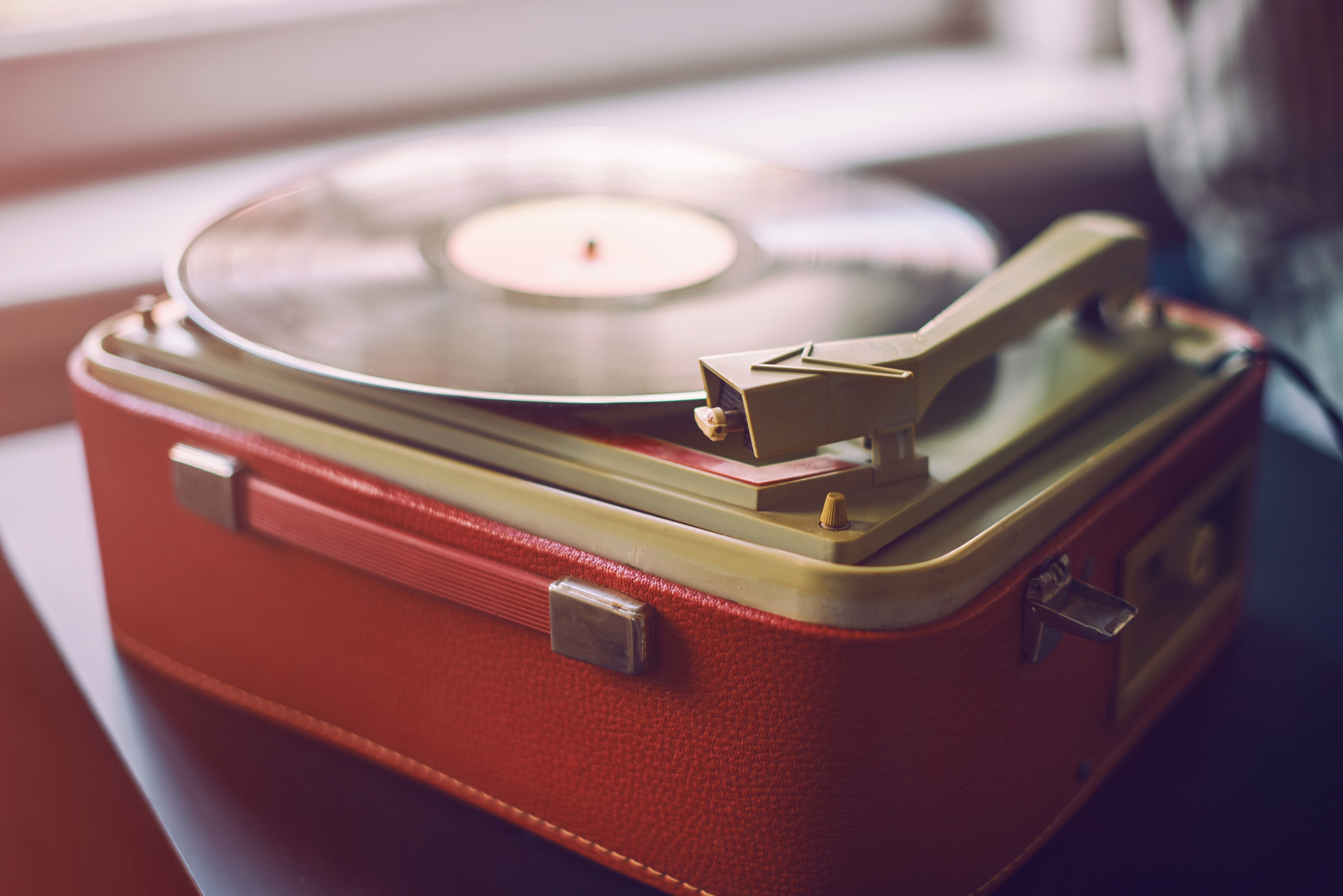
Lately, there have been more commercials aimed at helping you sleep. One of these commercials compares the sounds of pink, brown, and green noise, briefly implying that they can help you sleep.
Do these colorful sounds really help?
Well, that depends on the sound. Sleep medicine stresses the importance of keeping the sleeping environment dark, cool, and quiet, so using noise to help with sleep seems contradictory. But research supports using ambient sound to mask external noises that keep you from sleeping. As for how specific sound colors/patterns help with sleep, the number of research studies is still too small to draw conclusions. As a point of interest, sounds that help with sleep are much different than falling asleep to the television or music, and should only be on long enough to fall asleep (most have a timer). Studies have suggested that letting any ambient noise play all night interferes with sleep, makes you tired the next day, and has a negative impact on health.
What is a sound color?
Just like each color of light is a unique combination of light frequencies, each separate color of sound is a unique combination of sound frequencies and volumes.
Why colors?
Referring to noise by a color is a way to describe a sound that has a specific frequency pattern. Naming those frequency patterns after colors also helps researchers visualize and remember those patterns more easily.
What do they do?
You know that each color of light can have a different effect on you or even change your mood. Well, each color of sound can also create a different feeling or impression when you hear it. Additionally, the various colors of sound (frequency patterns) are thought to positively affect a variety of issues. For example, certain sound colors are thought to:
- Improve sleep (falling asleep and staying asleep).
- Lower anxiety and stress.
- Slow racing thoughts.
- Lower fatigue and brain fog.
- Improve relaxation of the mind and body.
- Enhance meditation.
- Lower irritability.
- Help with tinnitus.
What are the colors?
- White - The full spectrum of noise. Good for getting to sleep. This includes sounds like a fan, vacuum cleaner, air conditioner, and static from a television or radio.
- Pink - A lower pitch compared to white noise, making it more soothing and sleep-promoting. This color may help you stay asleep.
- Green - The same frequency of white noise but more closely resembles sounds of nature. Green noise may calm anxiety, promote peaceful sleep, and help you relax and focus for studying or work.
- Brown - This has a lower, deeper sound compared to pink noise and helps promote deep and uninterrupted sleep.
- Blue - A high pitched, "bright and lively" sound, which is great for masking external noises, but sounds harsh at loud volumes. This one can be energizing so it's not helpful for sleep.
- Violet - The most energizing and uplifting of them all, making it great for getting things done. Thought to improve your focus and keep you awake.
- Grey - An even-sounding, smoothed out version of both white and pink noise combined.
So, which color do you choose?
TIP 1: If choosing a color of sound to help with sleep, listen to it with your eyes closed. You want to make your decision based on the sound, not the color. With a quick search, you can find YouTube videos for each sound color so you can listen and compare for free before creating an account on a sleep app or website.
TIP 2: Regardless of which sound color you choose, you may need to adjust the volume for a night or two to find what volume is best for helping you fall asleep. With that in mind, if you decide to try one of these sounds, do it when you don't need to get up early the next day.
Bedtime Procrastination
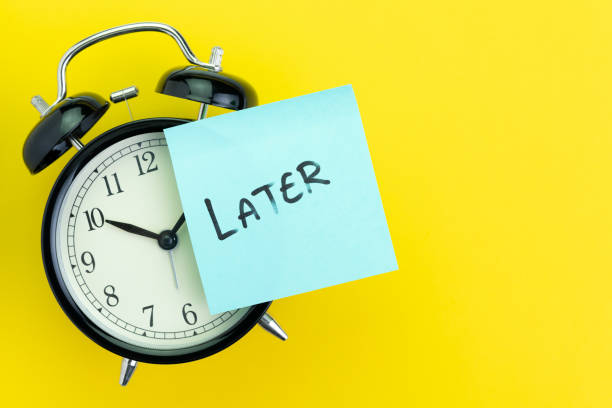
Bedtime procrastination is not a new term, but “revenge bedtime procrastination” is a term that has become more popular in the last few years. The word “revenge” was added to “bedtime procrastination” to express frustration related to ongoing long, stressful days that leave little time for personal enjoyment. Bedtime procrastination, revenge or not, became a world-wide issue during the pandemic when everyone was doing everything from home and the lines between home, work, and school became very blurred.
Even though you’re not doing everything from home now, your schedule is still crammed with things you need to do, with little time left for the stuff you want to do. So, at the end of the day after everything has calmed down and it’s quiet, you want to enjoy it. It’s not that you can’t sleep, but you sacrifice sleep to reclaim some free time or a few hours of entertainment you didn’t get during the day.
Research on bedtime procrastination is minimal but students, as well as those who procrastinate about other things, “night owls”, and those in high-stress careers appear to delay sleep more than others. Some researchers blame electronic devices for the behavior, but you don’t need a cell phone or a tablet to avoid falling asleep. It’s just as easy to delay sleep by binge watching a new series, playing another round (or 6) of a video game, reading, exercising, or any number of other things.
Fortunately, there are steps you can take to create new sleep habits:
- Keep your sleep environment as cool, dark, and quiet as possible.
- Avoid caffeine and alcohol before bed.
- Set the blue light filter on your devices. The blue light emitted from these devices confuses your body’s internal clock and sleep cycle.
- Get support from a friend, colleague, or counselor to strategize, set boundaries, and establish sleep goals for yourself.
- Build “fun” into your schedule - you schedule everything else in your day, so schedule some down-time too.
- Try to avoid heavy meals and intense workouts within 2-3 hours of bedtime.
- Avoid stressful conversations before bed.
- Avoid the news, social media, and doom-scrolling before bed.
- Reserve your bed for sleep – don’t work, do homework, or watch TV in bed.
- Add at least 30 minutes of wind-down time to your sleep routine. This can include light activity or mindless entertainment to help you relax for sleep.
- Keep a consistent bedtime and wake-up time, even on non-work/non-class days.
- Turn off cell phones, laptops, and tablets at least 30 minutes before bed. If the phone is your alarm, turn it upside down and put it across the room so you’re less likely to pick it up in the middle of the night.
If you don’t have a sleep routine, consider creating one. With consistency, your routine becomes a cue for sleep. The list above might seem a little overwhelming so don’t try to make all the changes at once. Implement one or two points that resonate with you, then give yourself time to adjust and see what works. You can always make more changes later to put your bedtime procrastination to sleep.
Caffeine & Sleep
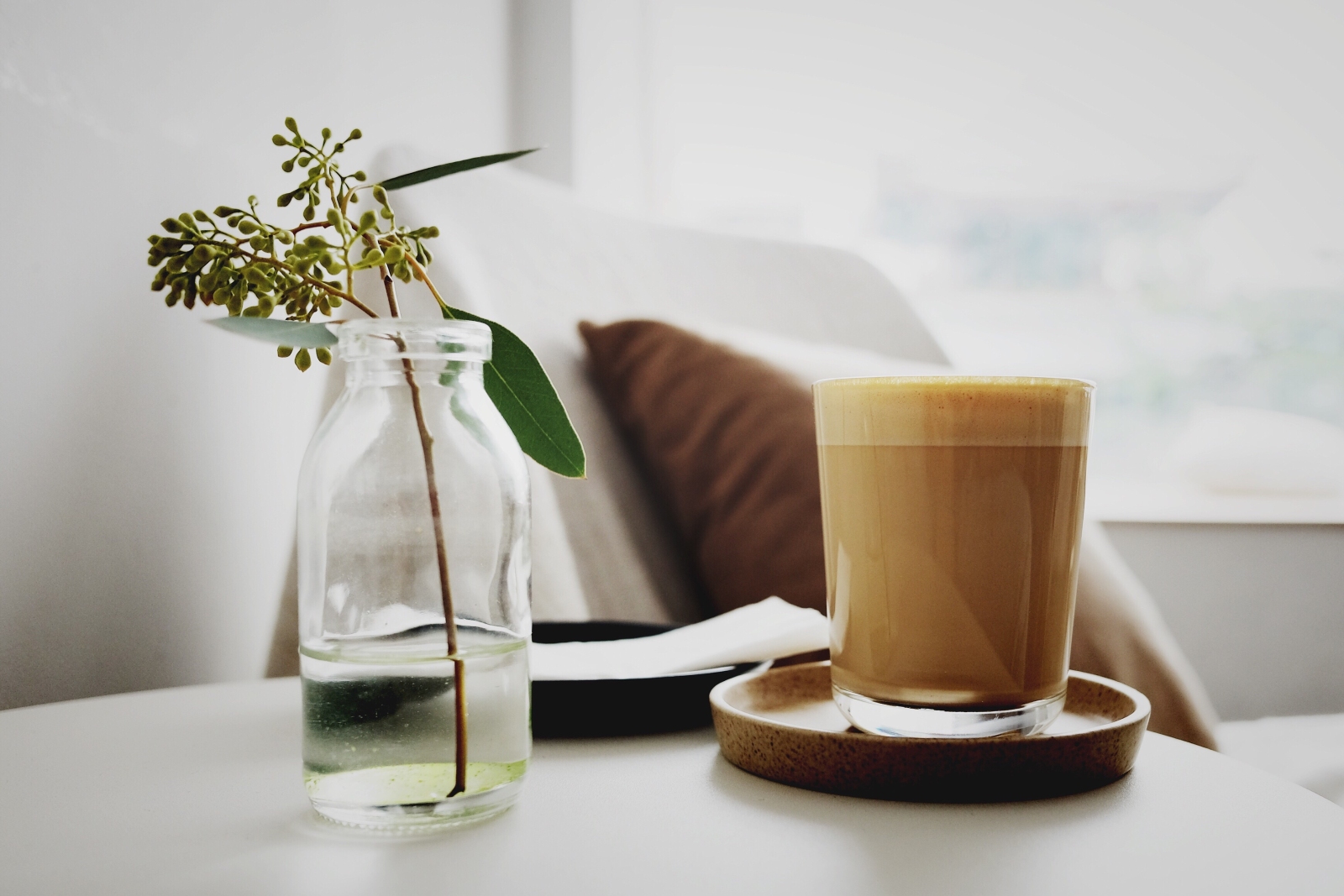
Nobody really wants to hear this, but sleeping better could mean decreasing (or eliminating) caffeine.
It can seem like a good idea to load up on caffeinated drinks for that extra boost of energy to get through a long night of homework and studying. But what happens when you're ready to sleep?
Some folks can drink anything with caffeine right before bed, still fall asleep quickly, and sleep through the night. For the rest of us, too much caffeine, too late in the day, means we have trouble going to sleep and/or staying asleep. Many times, that late day comforting cup (or three) of caffeine is to help us get through the next few hours and get things done. When we finally crawl into bed, we end up staring at the ceiling or watching the time tick by instead of sleeping. There is a better way.
If you need extra energy to get things done, get up and move around instead of going for the caffeine. Go for a walk or run, put on your favorite music and dance it out, or do a meditation designed to create energy (meditation's not just for relaxing). Unlike too much caffeine, these energy creating activities will help you finish what you need to do, and still let you sleep when you're ready.
Your Sleep Environment

The room where you sleep can have a huge effect on how well you sleep. Maybe you’re thinking it doesn’t matter what the room is like because your eyes are closed when you’re asleep, so you don’t see the clutter, light, or anything else. But don’t underestimate the setup of the room.
Let's start with temperature. You want the bedroom temperature to be as cold as possible. Our body temperature drops as night approaches so we can sleep; it rises as morning approaches to keep us awake. This means cooler temperatures tell the body that it’s time to sleep. You can pile on the blankets and put on fuzzy socks, as long as the air in the room is cold. As for how cold the room should be, sleep experts suggest setting the temperature between 60 and 68 degrees, but ultimately it depends on you. For some, 75 degrees is cold, while others set the thermostat at 62 degrees.
Once you set the temperature, it’s time to evaluate the amount of light making its way into your room at night. Streetlights, headlights, and hallway or bathroom lights can keep you from falling asleep or getting back to sleep. The brain registers even the slightest amount of light, so your bedroom should be as dark as possible. This may require blackout curtains or blackout shades to block the light coming in through the windows. Darkness is a signal to your internal sleep clock that it’s time to sleep. However, if a completely dark room is too uncomfortable, a nightlight can help. If nightlights are not an option, or provide too much light, wearing a sleep mask can block light without interfering with anyone else in the house.
Now that the bedroom is cool and dark, is it quiet? Does noise from another room, next door, or the street keep you awake? Earplugs can help, but they can be tricky, and it may take practice to get used to them. Earplugs only dull the noise so you’ll still hear loud deliberate noises and alarms, as well as children, pets, and partners if they’re sick or need your attention. A floor fan or white noise machine can also provide background noise to help drown out external sounds that interrupt your sleep. The floor fan will also help cool the room.
Does your bedroom double as your office and study area? If it does, then it’s important to shift the energy in the room from work to rest at the end of the day. A few ideas to do this include putting everything related to work or school in a drawer, covering the desk with a sheet, closing the laptop and putting a picture or vase on top of it, or using a room divider or screen to create separate sleep and work areas. It doesn’t help your sleep if you walk into the bedroom, see your workspace, and instantly start thinking about what you need to do tomorrow. If your laptop is open, tempting you to jump online and send a quick email, there’s a high probability you’ll be working into the night. We all know a quick email can easily turn into hours of work that will stimulate the mind and disrupt sleep. Get creative when disguising your work area at the end of the workday, so the bedroom feels restful at bedtime.
Speaking of Bad Sleep...
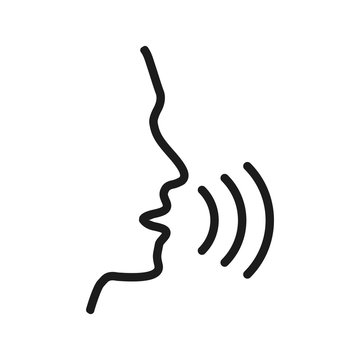
Do you talk about your horrible sleep to anyone who will listen? Most people with sleep problems do, so if that’s you, you’re not alone. But it's not helping you sleep.
Frequently talking about how badly you slept the night before, or how badly you sleep in general, sets up the self-fulfilling prophecy and reinforces anxiety. When you frequently talk to others about your horrible sleep, the mind and body grab onto that and act accordingly. In other words, if you're always talking about how you can't sleep, you'll have trouble sleeping.
Starting now, if someone asks how you slept last night, say you slept fine, alright, or well. In your mind you may be ranting about how you didn’t sleep at all because you were up every hour on the hour for forty-five minutes each time and you know how long it was because you watched the clock and it was miserable, and on and on. That's okay, just resist the urge to say it out loud.
Rules of Napping
Awww...the beloved afternoon nap. Believe it or not, this has become a hot topic among those who do not sleep well. Even those who don’t nap ask about it, and the pros and cons of midday snoozing are debated in the research. But regardless of differing opinions, most sleep professionals agree that if you're going to nap, do it with purpose and intention to get the most benefit. So before grabbing a pillow and blanket and heading for the couch, you need to know the rules of napping.
How Long to Nap
According to research on how we move through sleep stages, a nap should be thirty or ninety minutes in length (yes, it’s permission for a 90-minute nap!). Waking up between thirty and ninety minutes could interrupt deep sleep or dream (REM) sleep, which will make you feel worse than when you laid down. More recent studies suggest a twenty-minute nap is best because you’re less likely to enter deep sleep, so you’ll wake up refreshed instead of groggy.
With this in mind, you may need to set an alarm to make sure you don’t over-nap.
When to Nap
As for when to nap, choose a time between noon and 3:00 in the afternoon. A short nap within that time frame is least likely to interfere with sleep that night. The earlier the nap, say closer to the 1:00 hour, the more likely you are to reap the benefits of napping.
Where to Nap
When deciding where to take that afternoon snooze, choose a place that feels comfortable and safe for you. It should be a place that’s quiet and cozy where you won’t be distracted or interrupted. Again, you might want to set an alarm in case you get too comfortable!
Why Nap?
There can be health benefits to napping when it’s done with purpose and intention. At a minimum, a quick nap can do the following:
Reduce sleepiness
Improve performance
Improve learning
Boost memory
Regulate emotions
A Coffee Nap?
Yep, believe it or not, a few studies show having coffee before a short nap can help you feel more alert after a nap (compared to the typical non-coffee-infused nap). Hmmm…seems like a possible contradiction to caffeine-related sleep issues. But if you like coffee, and you like naps, it might be worth a try.
Final Thoughts on Napping
Most of us want that afternoon snooze time, but if you frequently need the afternoon snooze, it could indicate chronic sleep deprivation. If that sounds familiar, it might be time to talk to someone about your sleep.
If you were an avid napper but gave it up because you read that naps are a no-no for those who struggle with sleep, don’t give up hope just yet. Get your sleep back on track, then experiment with napping. If naps interfere with sleep, you’ll notice the pattern.
Anxiety & Sleep
The Gruesome Twosome: Anxiety and Sleep
We’re supposed to have anxiety. We need it. It’s part of our internal survival system. But anxiety can go rogue and invade your mind with frequent and intrusive fearful thoughts, even when there’s no actual threat. Likewise, we are supposed to sleep; we need sleep for a variety of health reasons in addition to just being tired. But poor sleep and anxiety fuel each other and make it difficult to get through the day.
Anxiety: The Intrusive Houseguest
If you struggle with persistent anxiety, you know it’s exhausting. It takes joy from your life, lowers productivity, and keeps you from being present and pleasant in relationships. Anxiety by itself can be overwhelming, but when you add poor sleep to that anxiety you’ve got an intrusive houseguest that doesn’t want to leave. You know what I mean—the houseguest who overstays their welcome, sleeps on your couch, drools on the pillows, invades your space, brings up a past you want to forget, and interrupts your sleep. Anxiety does the same (except for the drooling).
How does that happen?
Well, the brain views a lack of sleep the same way it views anxiety. So, when you have little or no sleep, your anxiety is naturally higher. Higher anxiety then fuels poor sleep, when further increases anxiety. See the pattern? If you have anxiety and poor sleep, you can do all the sleep things perfectly, but until you deal with the anxiety, sleep will not improve much, if at all.
To be clear, dealing with anxiety doesn’t mean trying to force yourself not
to think those thoughts, have those anxious feelings, or to always think positive thoughts. The more you try to ignore anxiety, the more intense it becomes. Anxiety needs to be acknowledged, but you don’t need to get stuck in it. And trying to stay positive all the time and not think those anxious thoughts can lead to more anxiety and worry about worrying. Needless to say, this will not help you sleep.
Common Symptoms
Once anxiety goes rogue, it can easily consume your life and create overwhelming symptoms that leave you emotionally and physically drained. Some of the more common symptoms include these:
- You question every conversation, action, and interaction.
- Making a decision about anything is excruciatingly hard.
- You cannot seem to shut off your mind.
- Every day brings uneasiness, fearing something will go wrong, you’ll mess up, or you’ll forget something important.
- You feel tightness or pain in your chest.
- You frequently have trouble breathing.
- Your energy is so low, getting off the couch is a chore.
- Muscle tension rarely goes away.
- You sweat excessively despite the temperature.
- You frequently feel jittery for no reason.
- Nausea is frequent regardless of what you eat (or don’t).
- Headaches are common.
- You feel a sense of panic for no obvious reason.
Although anxiety symptoms may not be identical for everyone, the worry, fear, overanalyzing, guilt, and hiding how you feel are common.
Patterns in the Anxiousness
When anxiety tightens its grip, it’s probably difficult to focus on anything other than the anxiety. But when you put those anxious thoughts on paper and challenge them, you notice a few things:
- Anxiety lives in the emotional sandbox with its pals “what if” and “yeah but.”
- Anxiety and its pals don’t live in the present moment. They’re only concerned with the past and making you worry about what might happen in the future.
- Anxiety and its pals don’t like logic and objectivity
Anxious thoughts don’t focus on positive outcomes or experiences. Instead, anxiety reminds you of every painful situation, wrong decision, and mistake you’ve ever made. The more you try to stop anxious thoughts or tell yourself not to think that way, the more intense and frequent the anxious thoughts become. Anxiety can easily revolve around your ability to sleep, potential health issues caused by a lack of sleep, or trying to figure out why you can’t sleep. It could also be about random tasks or other areas of your life. Regardless, anxiety fuels rotten sleep, and rotten sleep fuels anxiety. It’s time to break the sleep-anxiety cycle.
